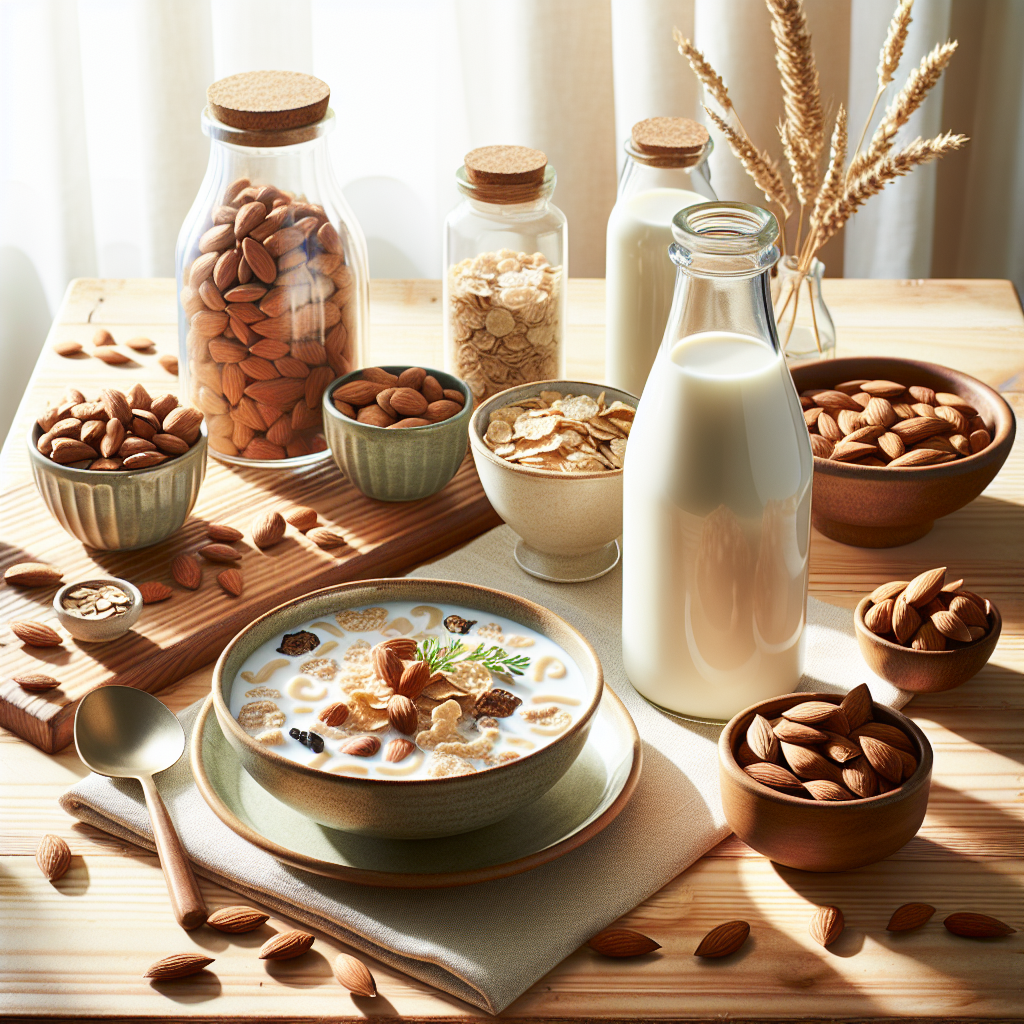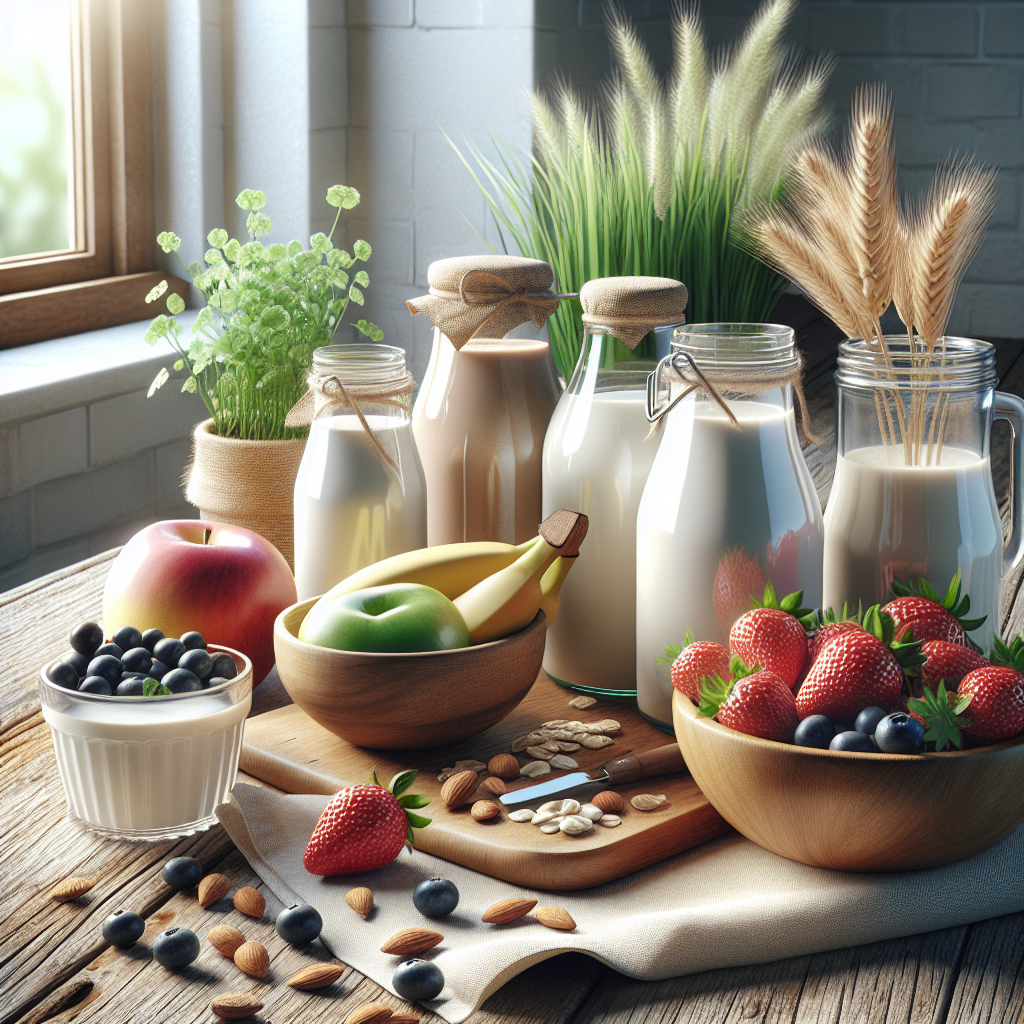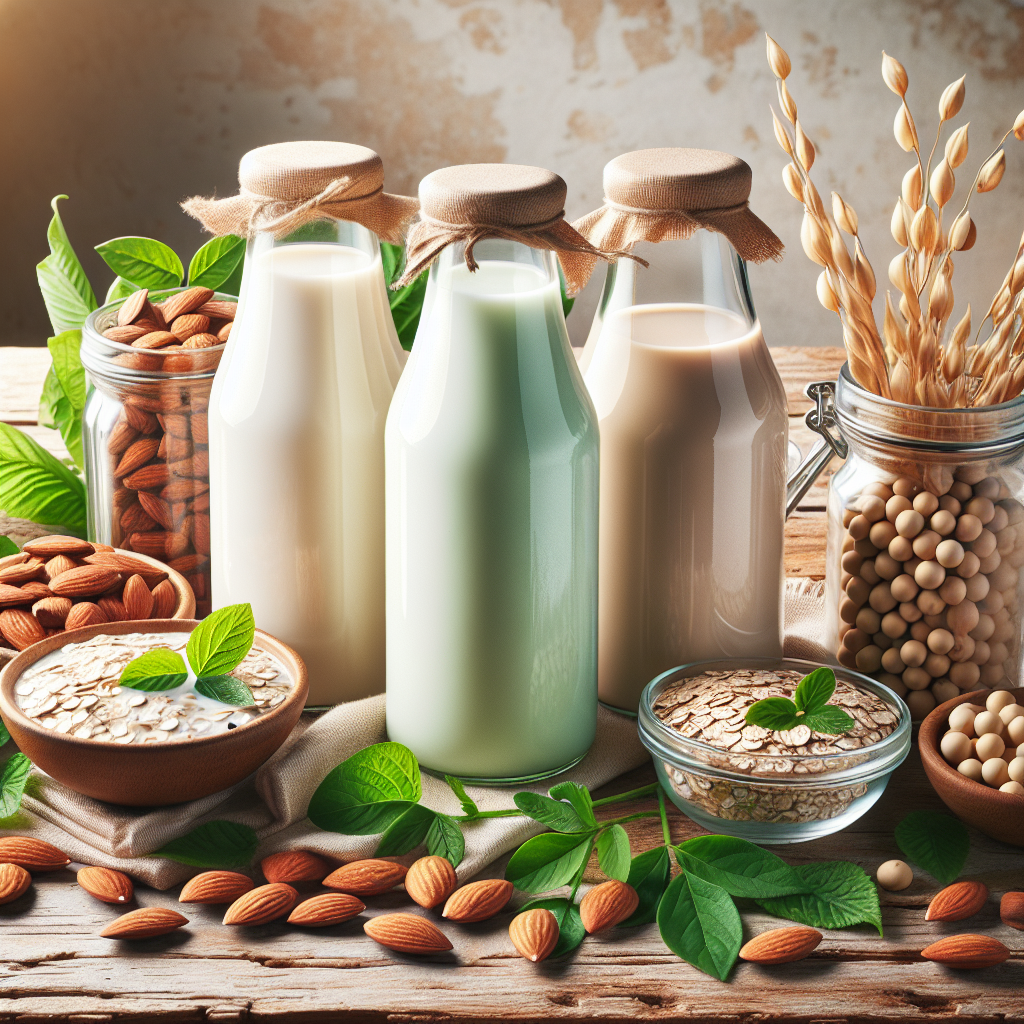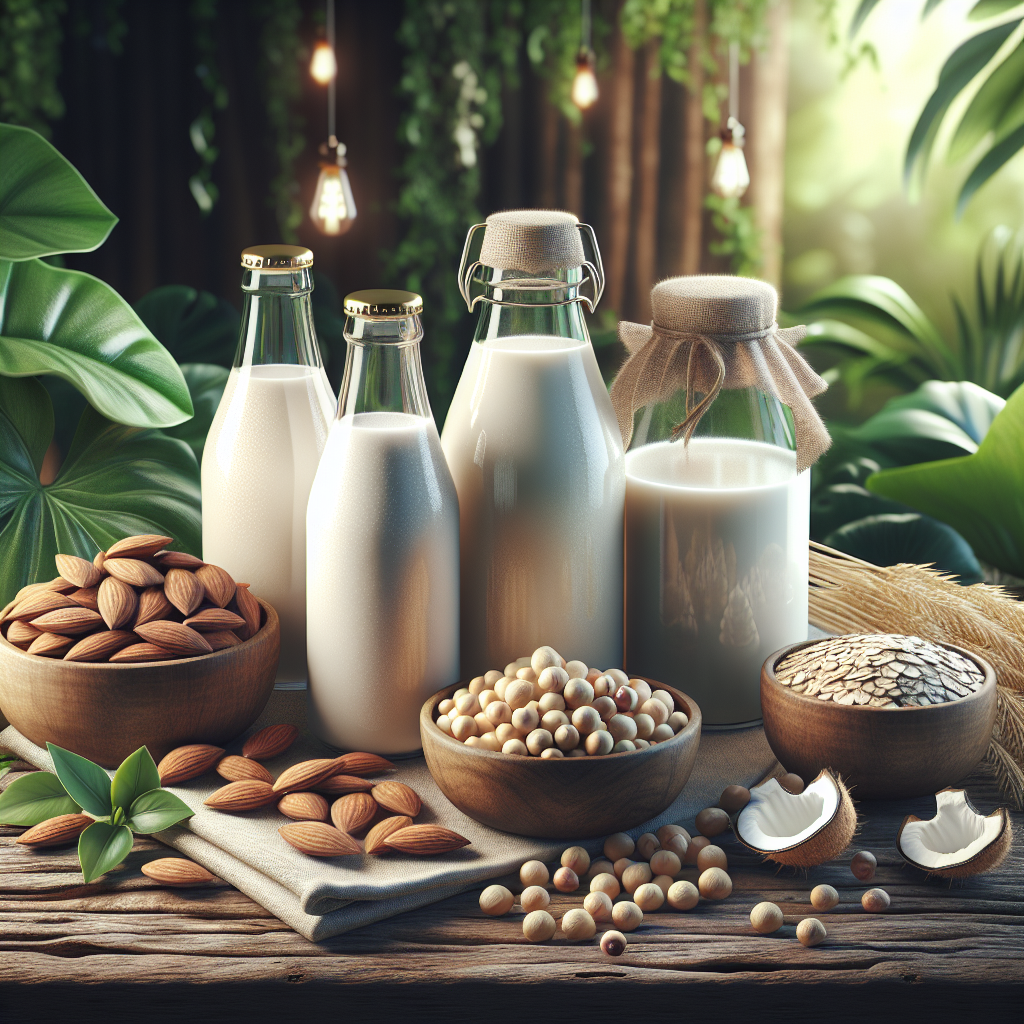In recent years, the shift towards dairy-free diets has gained significant momentum. This dietary change is not just a trend but a well-founded movement driven by health, environmental, and ethical considerations. Whether you're lactose intolerant, vegan, or simply looking to make healthier choices, a dairy-free diet offers numerous benefits.
One of the primary reasons for adopting a dairy-free lifestyle is the rising awareness of lactose intolerance. Up to 68% of the global population experiences some form of lactose malabsorption, making dairy consumption a source of discomfort for many. By eliminating dairy, individuals can avoid symptoms such as bloating, gas, and stomach cramps.
In addition to health benefits, a dairy-free diet is also more eco-friendly. The dairy industry is a significant contributor to greenhouse gas emissions, water usage, and deforestation. By opting for plant-based alternatives, you can reduce your carbon footprint and support more sustainable agricultural practices.
Moreover, dairy-free diets align with ethical considerations concerning animal welfare. Many people are choosing to eliminate dairy to avoid supporting industries that often involve the mistreatment of animals.
If you're ready to embrace a healthier, more sustainable lifestyle, making the switch to a dairy-free diet is an excellent first step. And with the help of our revolutionary MilkDepot.ca blender, creating your own delicious, fresh, and additive-free plant-based milk has never been easier. Get yours today!
Health Benefits of Going Dairy-Free
Switching to a dairy-free diet can bring a plethora of health benefits, making it an attractive option for those seeking to improve their overall well-being. One of the most immediate advantages is the reduction in digestive issues. Many individuals who struggle with lactose intolerance find relief from symptoms such as bloating, gas, and stomach cramps once they eliminate dairy from their diet.
Another significant benefit is the potential for improved skin health. Dairy products have been linked to various skin conditions, including acne and eczema. Removing dairy from your diet may lead to clearer skin and fewer breakouts, as well as a reduction in inflammatory skin issues.
Heart health is another area where a dairy-free diet can make a positive impact. Dairy products, especially those high in saturated fats, can contribute to high cholesterol levels and increased risk of heart disease. By opting for plant-based alternatives, you can lower your intake of unhealthy fats and improve your cardiovascular health.
Additionally, a dairy-free diet can aid in weight management. Many plant-based milk alternatives are lower in calories and fat compared to their dairy counterparts. This can help you maintain a healthy weight or even shed a few pounds, particularly when combined with a balanced diet and regular exercise.
Furthermore, dairy-free diets often lead to increased nutrient intake from a variety of sources. Plant-based foods provide essential vitamins, minerals, and antioxidants that support overall health. For example, nut-based milks are rich in vitamins E and B, while seed-based milks can offer a good source of omega-3 fatty acids.
Overall, the health benefits of going dairy-free are numerous and compelling, making it a worthwhile consideration for anyone looking to enhance their health and well-being.
Dairy-Free Milk Alternatives

As more people embrace a dairy-free lifestyle, the market for milk alternatives has expanded significantly. Whether you're lactose intolerant, vegan, or simply looking to reduce your dairy intake, there are numerous options available to suit your needs and taste preferences.
Almond Milk: One of the most popular dairy-free alternatives, almond milk is known for its light, slightly nutty flavor. It's low in calories and often fortified with essential nutrients like calcium and vitamin D. Almond milk works well in smoothies, cereals, and as a coffee creamer.
Soy Milk: Another widely available option, soy milk is rich in protein and has a creamy consistency similar to cow's milk. It is also fortified with essential vitamins and minerals. Soy milk can be used in baking, cooking, and as a direct substitute for dairy milk in most recipes.
Oat Milk: Gaining popularity for its creamy texture and mild taste, oat milk is an excellent choice for those with nut allergies. It's often enriched with vitamins and minerals and is particularly good in coffee and tea due to its frothing ability.
Coconut Milk: Known for its rich and tropical flavor, coconut milk is a versatile option that can be used in both sweet and savory dishes. It's high in healthy fats, making it a great choice for cooking and baking.
Rice Milk: For those with multiple allergies, rice milk is a hypoallergenic option. It's lighter in consistency and has a naturally sweet taste, making it suitable for drinking on its own or in light dishes.
Cashew Milk: With a rich, creamy texture, cashew milk is perfect for creamy soups, sauces, and desserts. It has a subtle flavor that blends well with various ingredients.
With so many delicious and nutritious dairy-free milk alternatives available, making the switch from traditional dairy is easier than ever. Each option offers unique benefits and can be easily incorporated into your daily diet.
Environmental Impact of Dairy-Free Diets

Switching to a dairy-free diet doesn't just benefit your health; it also has a significant positive impact on the environment. The dairy industry is responsible for a substantial portion of greenhouse gas emissions, deforestation, and water usage.
Greenhouse Gas Emissions: Dairy farming produces methane, a potent greenhouse gas, through enteric fermentation in cows. By reducing or eliminating dairy consumption, you can help decrease the demand for dairy production, thereby reducing methane emissions. Studies have shown that plant-based milk alternatives produce far fewer emissions compared to traditional dairy farming.
Water Usage: The production of dairy milk requires a large amount of water, from feeding and hydrating the cows to processing the milk. In contrast, most dairy-free milk alternatives, such as almond, oat, and soy milk, use significantly less water. For example, producing one liter of almond milk requires only a fraction of the water needed to produce the same amount of cow's milk.
Deforestation and Land Use: Dairy farming often requires large expanses of land for grazing and growing feed crops. This demand for land contributes to deforestation and habitat destruction, particularly in biodiverse regions such as the Amazon rainforest. Plant-based milk alternatives typically require less land, helping to preserve natural habitats and reduce deforestation.
Biodiversity: The dairy industry's impact on land use and deforestation negatively affects biodiversity. By reducing the reliance on dairy and shifting towards plant-based alternatives, we can help protect and restore ecosystems, promoting biodiversity and the well-being of various species.
In conclusion, adopting a dairy-free diet can play a crucial role in mitigating environmental damage. By choosing plant-based milk alternatives, you are not only making a healthier choice for yourself but also contributing to a more sustainable and eco-friendly planet.
Tips for Transitioning to a Dairy-Free Lifestyle

Making the switch to a dairy-free lifestyle can be smooth and enjoyable with the right guidance. Here are some practical tips to help you transition seamlessly:
1. Start Gradually: Rather than eliminating all dairy products at once, begin by swapping out one dairy item at a time. For instance, start with your morning coffee by replacing cow's milk with almond, oat, or soy milk. Gradual changes make the transition less overwhelming and more sustainable.
2. Explore Dairy-Free Alternatives: Today, there's a wide range of dairy-free alternatives available in the market. From plant-based milks to vegan cheeses and yogurts, you won't miss out on your favorite flavors and textures. Experiment with different brands and types to find the ones you enjoy the most.
3. Read Labels Carefully: When shopping, always check the ingredient labels to ensure the products you choose are truly dairy-free. Some processed foods may contain hidden dairy ingredients like casein, whey, or lactose.
4. Boost Nutrient Intake: Dairy products are rich in calcium and vitamin D, so it's important to find alternative sources of these nutrients. Fortified plant-based milks, leafy greens, almonds, and tofu are excellent sources of calcium. Spend some time in the sun or consider a vitamin D supplement to maintain adequate levels.
5. Get Creative in the Kitchen: Embrace the opportunity to try new recipes and ingredients. There are countless dairy-free recipes online for everything from creamy soups to decadent desserts. Experimenting in the kitchen can make your dairy-free journey exciting and delicious.
6. Seek Support: Join online communities or local groups focused on dairy-free living. Sharing experiences, tips, and recipes with others can provide motivation and make the transition easier. Connecting with like-minded individuals can also offer emotional support and encouragement.
7. Be Patient with Yourself: Transitioning to a dairy-free lifestyle is a personal journey and may take time. Be patient and give yourself grace as you adjust to new eating habits. Celebrate small victories and remember that every step towards a dairy-free lifestyle is a positive one.
By following these tips, you can make the shift to a dairy-free lifestyle enjoyable and sustainable. Not only will you be nurturing your own health, but you'll also be contributing to a more ethical and eco-friendly world.
Dairy-Free Recipes to Try at Home

One of the most enjoyable aspects of transitioning to a dairy-free lifestyle is experimenting with new recipes. Here are some delicious and easy-to-make dairy-free recipes that you can try at home:
1. Creamy Cashew Alfredo: This rich and creamy sauce is perfect for pasta lovers. Blend soaked cashews with garlic, nutritional yeast, lemon juice, and a bit of water until smooth. Toss with your favorite pasta and steamed veggies for a comforting meal.
2. Almond Milk Pancakes: Start your morning with fluffy dairy-free pancakes. Mix almond milk with flour, baking powder, a pinch of salt, and a sweetener of your choice. Cook on a hot griddle and serve with fresh fruits and maple syrup.
3. Coconut Yogurt Parfait: Layer coconut yogurt with granola, fresh berries, and a drizzle of honey for a quick and nutritious breakfast or snack. Coconut yogurt is a perfect substitute for traditional dairy yogurt and offers a tropical twist.
4. Vegan Mac and Cheese: Create a creamy cheese sauce using soaked cashews, nutritional yeast, mustard, garlic powder, and a splash of almond milk. Mix the sauce with cooked macaroni for a comforting and hearty meal.
5. Dairy-Free Chocolate Mousse: Indulge your sweet tooth with a decadent chocolate mousse made from avocado, cocoa powder, and a sweetener like maple syrup. Blend until smooth and chill before serving.
6. Chickpea Salad Sandwich: Mash chickpeas with vegan mayo, diced celery, onions, and a bit of mustard. Spread on whole grain bread with lettuce and tomato for a satisfying and protein-packed lunch.
These recipes not only cater to a dairy-free diet but are also nutritious and flavorful. They showcase the versatility and creativity that comes with dairy-free cooking, allowing you to enjoy your favorite meals without compromise.
Ready to take your dairy-free journey to the next level? Get yours today! With MilkDepot.com's revolutionary blender, you can create fresh, homemade dairy-free milk in under 60 seconds, tailored to your taste and needs.
